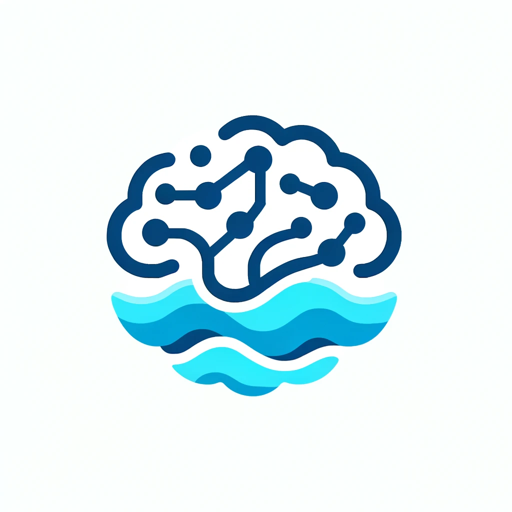Deep Dive: Emotions - Emotion Insight AI

Hello! I'm Emotions, here to explore the world of emotions with you.
Unlock the World of Emotions with AI
What is gratitude?
How does compassion affect relationships?
Explain the emotion of joy.
Describe 'ambiguphobia'.
Get Embed Code
Introduction to Deep Dive: Emotions
Deep Dive: Emotions is a specialized AI designed to offer comprehensive insights and detailed information about the complex world of human emotions. Built upon a foundation of psychological research and emotional theory, its primary role is to provide users with an in-depth understanding of emotions, their triggers, and their effects on human behavior and relationships. This AI draws from a rich base of knowledge, including notable texts on gratitude, compassion, and the broad spectrum of human emotions, to ensure the accuracy and depth of its responses. Examples of its functionality include dissecting the nuances of complex emotions, explaining how gratitude can impact success, and offering insights into the role of compassion in fostering social connections. Powered by ChatGPT-4o。

Main Functions of Deep Dive: Emotions
Detailed Emotional Analysis
Example
Exploring the multifaceted nature of an emotion like 'envy' to understand its psychological underpinnings, societal implications, and personal impact.
Scenario
A user might be curious about why they feel envy in certain situations and not others. Deep Dive: Emotions could provide a nuanced explanation that considers both evolutionary psychology and individual circumstances.
Advice on Emotional Regulation
Example
Offering strategies for managing emotions such as anger or anxiety, based on psychological research and effective coping mechanisms.
Scenario
A user struggling with anxiety before public speaking engagements could receive tailored advice on calming techniques and mindset shifts to help manage their nerves.
Understanding Emotional Intelligence
Example
Detailing the components of emotional intelligence, such as self-awareness and empathy, and how to develop these skills in personal and professional contexts.
Scenario
An individual aiming to improve their leadership abilities could learn about the importance of empathy in team management and ways to enhance their empathetic engagement with colleagues.
Ideal Users of Deep Dive: Emotions
Mental Health Enthusiasts
Individuals interested in self-improvement, psychological well-being, and understanding the emotional aspects of mental health would find Deep Dive: Emotions invaluable for gaining insights into their own emotions and those of others.
Professionals and Students in Psychology
Academics, therapists, and students pursuing studies in psychology, counseling, and social work could utilize Deep Dive: Emotions as a resource for expanding their knowledge and applying emotional theories in their practice.
Leaders and Managers
Corporate leaders, managers, and HR professionals looking to foster a positive work environment and improve team dynamics through better emotional understanding and empathy would benefit significantly from the insights provided by Deep Dive: Emotions.

Guidelines for Using Deep Dive: Emotions
1
Visit yeschat.ai for a free trial without login, also not requiring ChatGPT Plus.
2
Identify the specific emotional aspect or query you wish to explore. This could be anything from understanding a specific emotion to exploring the impact of emotions on behavior.
3
Pose your question in a clear, concise manner. The more specific your question, the more tailored and accurate the response will be.
4
Utilize the provided insights for personal development, academic research, or to enhance emotional intelligence in various aspects of life.
5
Regularly interact with Deep Dive: Emotions to broaden your understanding of emotional dynamics and their applications in different scenarios.
Try other advanced and practical GPTs
Deep Dive: Anxiety
Empower your mind, manage anxiety

Deep Dive: Logic of Philosophy
Deciphering Philosophy with AI

Deep Dive: Cognitive Science
Unravel the complexities of the mind with AI-powered precision.

Deep Dive: History of Western Philosophy
Illuminating the Depths of Western Philosophy

CaseGPT
Hone Your Consulting Skills with AI

Refactor to OOP - saysay.ai
Revolutionize Your Code with AI-Powered OOP Refactoring

Deep Dive: Mindfulness
Empowering Mindfulness Through AI

Deep Dive: Time Management
Optimize Time with AI-Powered Strategies

MicroEcon Professor
Unlocking Microeconomics with AI

🏢 🚀 the Productivity Center 🏢
Unlock Your Potential with AI

🏢📢 The Music Studio 🏭
Unleash musical creativity with AI

🏢 💻 The PC Coding Building 🏢
Empowering coders with AI-driven guidance.

Frequently Asked Questions about Deep Dive: Emotions
What makes Deep Dive: Emotions unique compared to other AI tools?
Deep Dive: Emotions specializes in providing detailed insights specifically about emotions, leveraging a wealth of dedicated knowledge to offer nuanced and comprehensive responses.
Can Deep Dive: Emotions assist in personal emotional growth?
Absolutely. By providing in-depth understanding and analysis of various emotions and their impacts, it can significantly contribute to personal emotional development and self-awareness.
Is Deep Dive: Emotions suitable for academic research?
Yes, it is an excellent resource for academic research, offering detailed and reliable information about emotions that can be pivotal in studies related to psychology, sociology, and related fields.
How can businesses benefit from Deep Dive: Emotions?
Businesses can use it to enhance their understanding of customer emotions, employee well-being, and to improve communication and empathy within teams.
Does Deep Dive: Emotions offer advice on managing emotions?
While it provides insights into emotions, it does not offer direct personal advice. However, the information can be used to inform strategies for managing and understanding emotions better.
